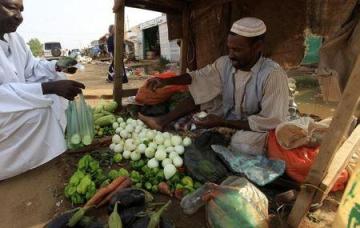Sudan’s inflation rises to 54,34% in February: CBoS
March 16, 2018 (KHARTOUM) – Sudan’s inflation rate has risen to 54,34% in February compared to 52,37% in January, reported the Central Bureau of Statistics (CBoS)

It pointed out to varying increase in prices of commodity sub-groups including meat, bread and grains, oil, tea and coffee, milk, cheese, eggs and sugar.
In January, the director of the Troubled Currencies Programme at Johns Hopkins University Steve Hanke said Sudan’s inflation has skyrocketed to a record high of 122% pointing the East African country “now has the second highest inflation rate in the world after Venezuela”.
Last month, the Sudanese pound plummeted to record lows on the black market this year. The U.S. dollar was sold for a high 42 pounds in early February.
However, the government introduced a number of measures to curb the rise in the dollar price including limiting cash withdrawal from banks to absorb liquidity, cracking down on black market Forex traders and restricting imports.
The government measures managed to pull back the dollar price to 32,00 pounds however economists expect a new rise in its price once these restrictions were lifted.
Following the promulgation of the 2018 budget which included a number of austerity measures, peaceful protests erupted in a number of Sudanese states leading to the killing of a high school student in West Darfur State and detention of dozens of opposition activists across the country.
Economists attribute the deteriorating living condition and economic meltdown to corruption, lack of production policies, and lack of economic reform vision following the secession of South Sudan.
They also point to the need to end the war and direct all the national revenue for infrastructure and economic development.
Sudan lost 75% of its oil reserves after the southern part of the country became an independent nation in July 2011, denying the north billions of dollars in revenues. Oil revenue constituted more than half of Sudan’s revenue and 90% of its exports.
(ST)
